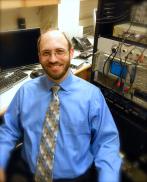We are very excited to be hosting Rev. Kyle Meyaard-Schaap for a Trinity Fellowship Lecture, Wednesday, April 3rd, 7:30pm at Evangelical Community Church. Kyle is a graduate of Calvin College and Western Theological Seminary and serves as the 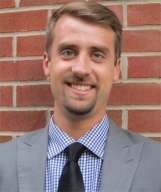 National Organizer and Spokesperson for Y.E.C.A. – Young Evangelicals for Climate Action. and has been a steering committee member since 2013. Before going on staff at Y.E.C.A., Kyle served for four years as the Creation Care Coordinator at the Office of Social Justice for the Christian Reformed Church in North America, where he worked to educate and equip individuals and congregations to learn and act at the intersection of creation care and Christian faith.
National Organizer and Spokesperson for Y.E.C.A. – Young Evangelicals for Climate Action. and has been a steering committee member since 2013. Before going on staff at Y.E.C.A., Kyle served for four years as the Creation Care Coordinator at the Office of Social Justice for the Christian Reformed Church in North America, where he worked to educate and equip individuals and congregations to learn and act at the intersection of creation care and Christian faith.
The lecture will explore how the Christian faith leads us to a deeper concern for God’s earth and love for neighbor both at home and around the world, integration theology, science, and action. There will be a time of Q&A following the lecture.
Kyle has received numerous awards for his work, including being named in 2015 to Midwest Energy Group’s inaugural 40 Under 40 cohort for his work on climate change education and advocacy. He has been featured in national and international news outlets such as PBS, NPR, NBC News, Reuters, and U.S. News and World Report. He is married to Allison and resides in Grand Rapids, MI with their son Simon. In his free time, Kyle enjoys cooking, reading, and spending time outside in God’s beautiful creation.

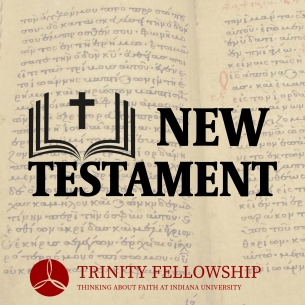 Dr. Steven Lulich led an excellent exploration of the canon as it was developing in the early church. The audio is available to
Dr. Steven Lulich led an excellent exploration of the canon as it was developing in the early church. The audio is available to 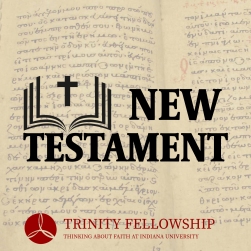 The first lecture from the four part series on the New Testament has been posted. It was a great conversation, with more to follow!
The first lecture from the four part series on the New Testament has been posted. It was a great conversation, with more to follow!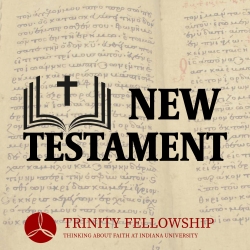 This coming Wednesday, Bob Whitaker and Steven Lulich will kick off the discussion on the New Testament, wrestling with questions related to canonicity and reliability. Week one, the discussion will revolve around F.F. Bruce’s book, The New Testament Documents: Are They Reliable. Chapter one and two are
This coming Wednesday, Bob Whitaker and Steven Lulich will kick off the discussion on the New Testament, wrestling with questions related to canonicity and reliability. Week one, the discussion will revolve around F.F. Bruce’s book, The New Testament Documents: Are They Reliable. Chapter one and two are 